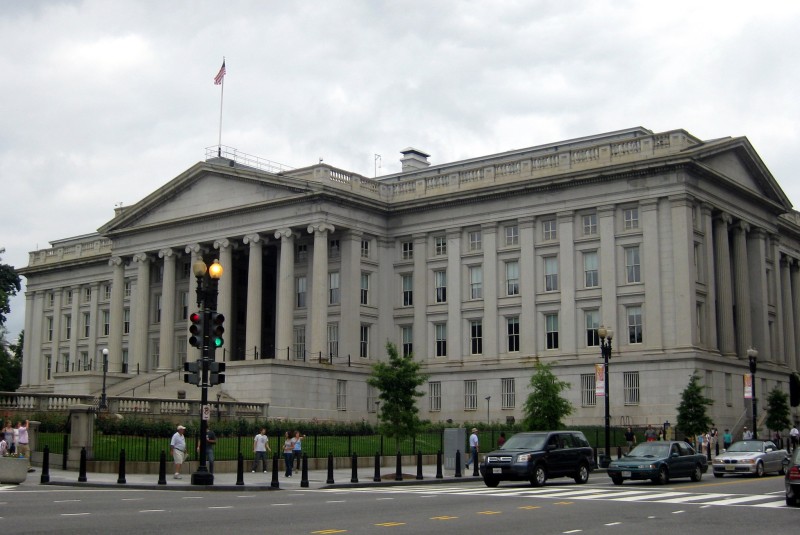### Introduction to Recent Sanctions
On a pivotal day for cybersecurity and international relations, the U.S. Department of the Treasury took significant action against a Russian technology company known as Aeza Group. Sanctioned due to its alleged role in facilitating cybercrime, Aeza Group is accused of providing critical infrastructure that has supported a variety of malicious activities, including ransomware attacks and drug trafficking. This article unpacks the multifaceted dimensions of this enforcement action and sheds light on the broader implications for cybersecurity.
### Who is Aeza Group?
Based in St. Petersburg, Aeza Group operates as a so-called “bulletproof hosting” provider. This type of service offers resilient server infrastructure designed specifically to evade law enforcement and prevent service providers from taking down illegal operations. Bulletproof hosting has become increasingly popular among cybercriminals, serving as a lifeline for those looking to engage in malicious activities with little fear of repercussion.
### Nature of the Sanctions
The sanctions, announced by the Treasury’s Office of Foreign Assets Control (OFAC), extend beyond Aeza Group itself. They encompass three affiliated companies and four high-ranking leaders within the organization, emphasizing a robust approach to dismantling the operational frameworks of cybercriminal enterprises. Notably, a front company located in the United Kingdom was also sanctioned, in collaboration with the U.K.’s National Crime Agency, highlighting international efforts to combat cybercrime.
### Cybercrime Infrastructure
One of the most alarming aspects of Aeza Group’s operations is its reported support for various malware and ransomware groups, including notorious actors linked to the Meduza and Lumma infostealers. These infostealers are designed to harvest sensitive personal data, passwords, and login credentials, creating gateways for deeper and more damaging cybercrimes. The data harvested is often sold on darknet markets, integrating into the dark web’s intricate ecosystem of criminal activities.
### Connections to Ransomware
Aeza Group’s hosting infrastructure is implicated in facilitating the activities of notorious cybercriminal rings, including the BianLian ransomware group. This underscores a troubling trend: ransomware attacks have dramatically escalated in frequency and sophistication, causing widespread disruption across sectors, especially in U.S. defense and technology firms. The implications of such attacks extend beyond immediate financial losses, often disrupting essential services and compromising sensitive information.
### The Drug Trafficking Angle
In addition to ransomware, Aeza Group is reportedly connected to the nefarious world of online drug trafficking. The firm has facilitated operations on platforms like BlackSprut, which specializes in the trade of illicit drugs, often linked to synthetic opioids such as fentanyl. The Treasury has indicated that such platforms contribute significantly to the growing narcotics crisis in the United States, underscoring the intertwining of cybercrime with public health issues.
### Role of Treasury Officials
Bradley T. Smith, acting undersecretary for terrorism and financial intelligence, articulated the government’s stance on this pressing issue. He emphasized the reliance of cybercriminals on bulletproof hosting services like Aeza Group for carrying out disruptive attacks and selling black-market goods. The Treasury’s action is part of a broader strategy to undermine the core infrastructure supporting cybercrime networks, demonstrating an intent to hold responsible parties accountable.
### Entities and Individuals Sanctioned
Beyond Aeza Group, the sanctions also target Aeza International Ltd., based in the U.K., along with two Russian subsidiaries: Aeza Logistic LLC and Cloud Solutions LLC. Each of these entities has been implicated in supporting the illicit operations of Aeza Group. Additionally, the sanctions name four senior executives: Arsenii Penzev (CEO), Yurii Bozoyan (general director), Vladimir Gast (technical director), and Igor Knyazev (current manager). Their roles in steering the company toward illicit activities make them complicit in the wider cybercrime ecosystem.
### Legal Implications of the Sanctions
The ramifications of these sanctions are significant. All U.S.-based properties and interests of those listed are now blocked, and U.S. citizens are prohibited from engaging in any related transactions. Moreover, Treasury officials have warned that both U.S. and foreign entities could face penalties even without intent, reinforcing the seriousness of compliance with these sanctions.
### A Continued Fight Against Cybercrime
This decisive action follows a previous OFAC sanction against another bulletproof hosting provider, indicating an ongoing commitment to dismantling the intricate systems that support cybercrime on an international scale. The Treasury’s collaborative approach with allies, including the U.K., signals a growing recognition of the need for a united front against cyber threats that transcend borders.


